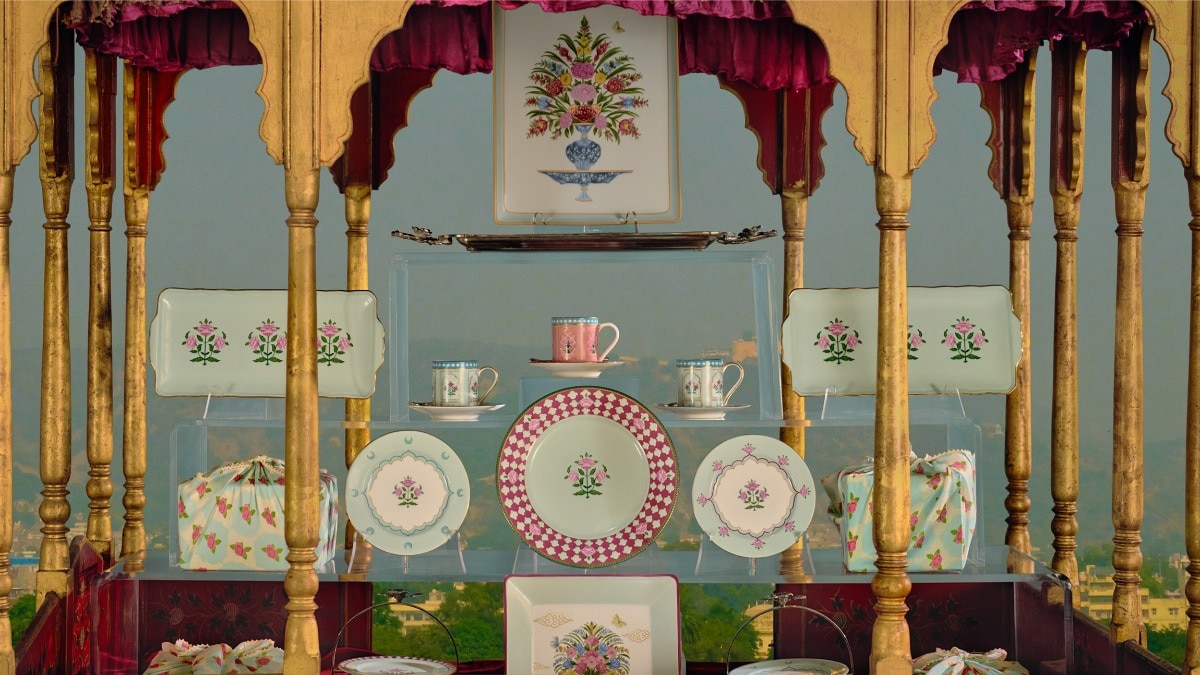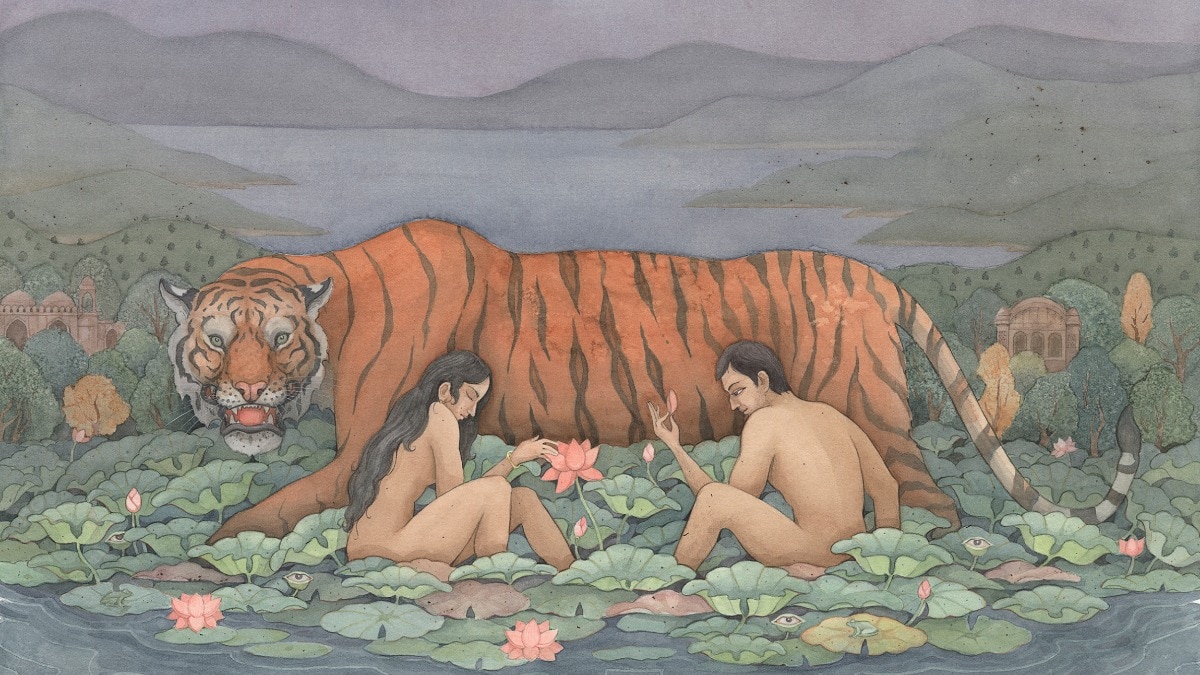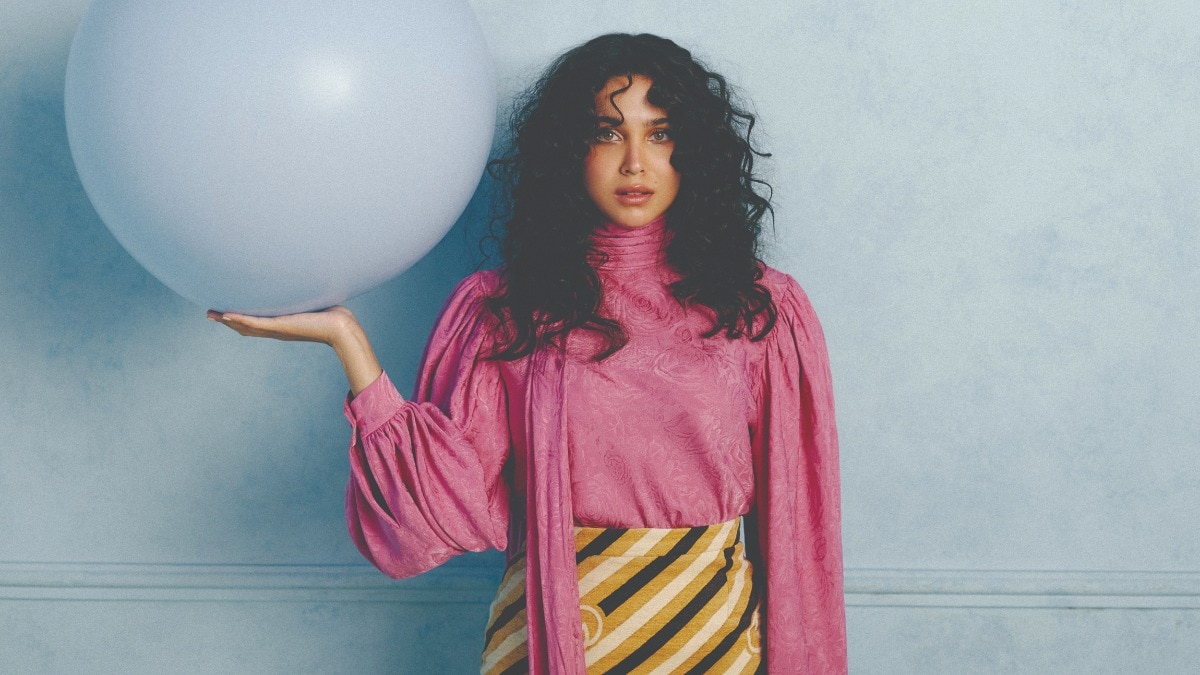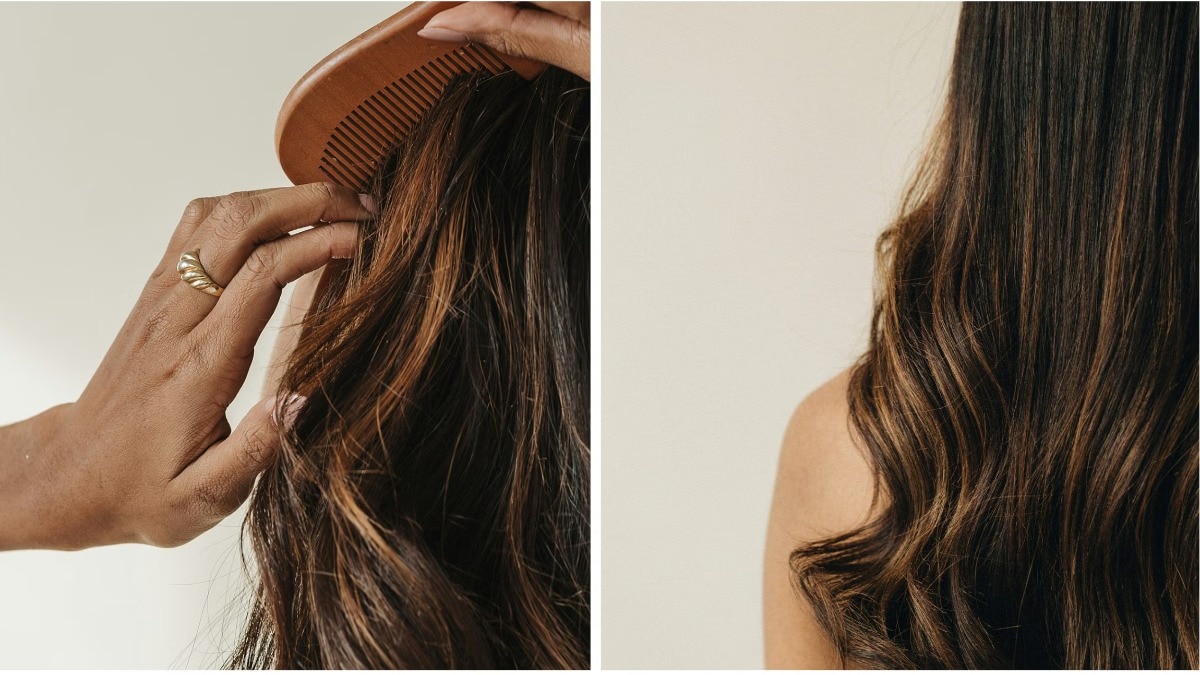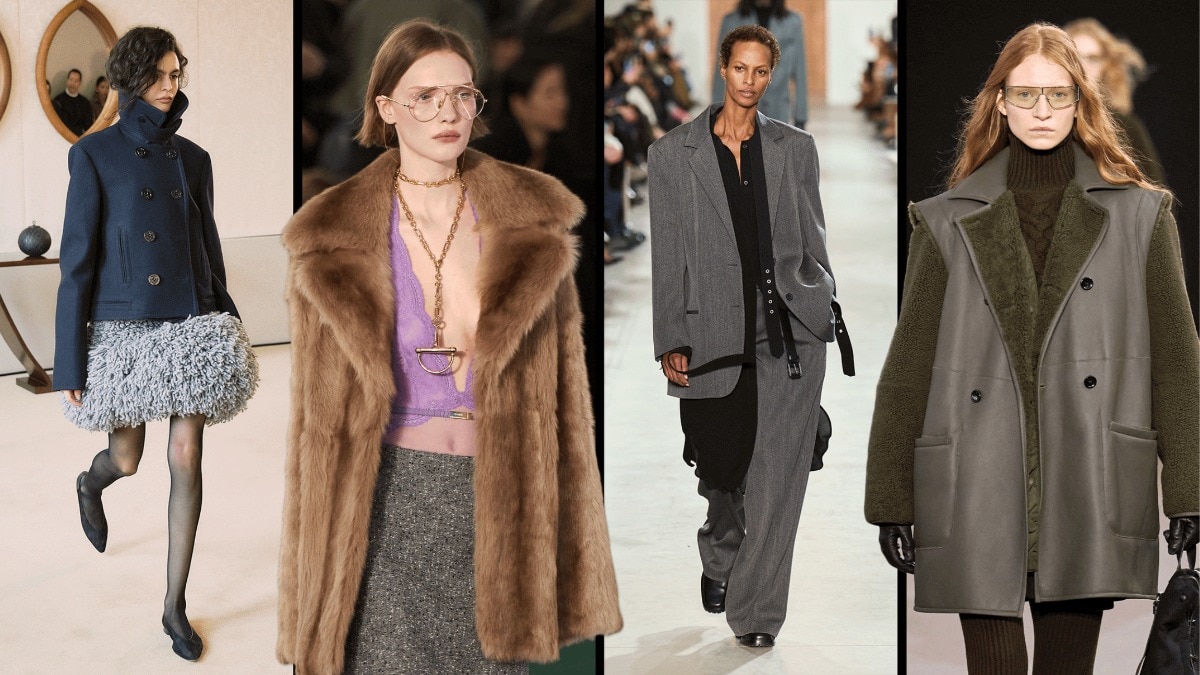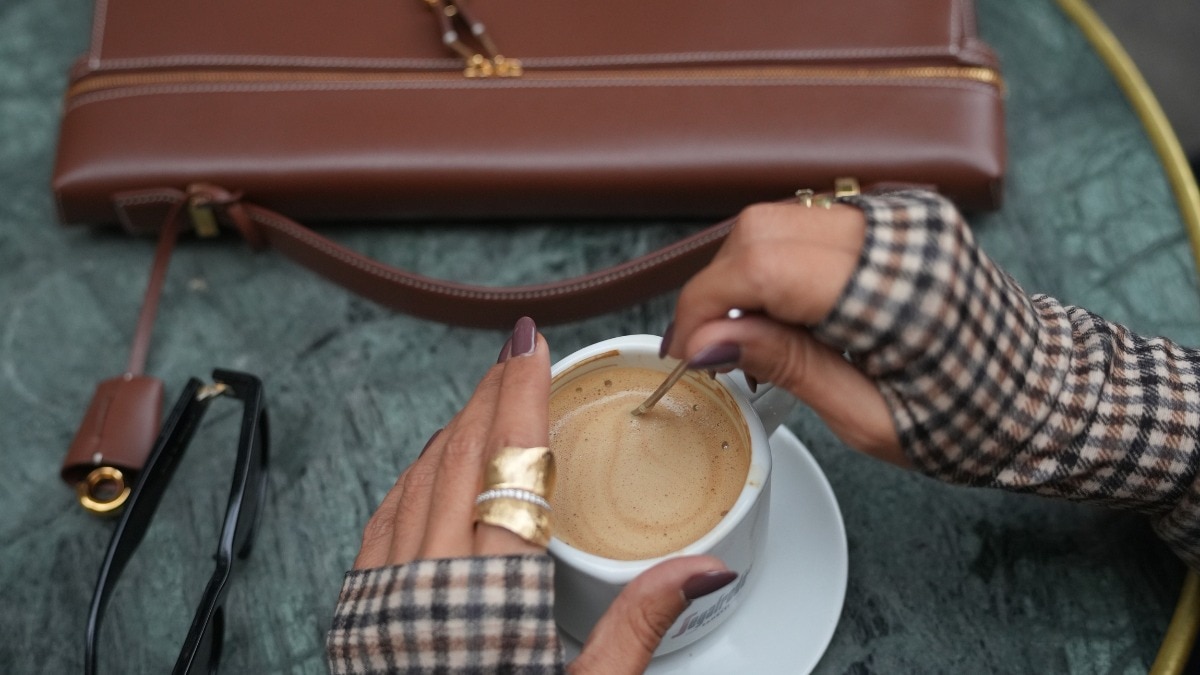The show must go on, as one takes to the grand stage
In the second part of this Bazaar India exclusive, four amazing theatre artists speak about life on the stage


They've got the expressions, the grace, the poise, and the emotion in them to have us mesmerized as they step on stage to leave us in awe. For decades, Indian theatre artists, through their art and talent have had audiences glued not to their screens, but a stage that continues to produce plays that leave much more than a lasting impression on your minds.
Part two of this Bazaar India exclusive sees four fantastic theatre artists speak about theatre being one of the most immersive forms of storytelling, the aspects of acting on stage and much more.
Ira Dubey: Actor

“I feel theatre is in my blood, and the women in my family—my mother and aunts—played a huge role in me wanting to pursue it professionally. They put me on stage when I was just three-years-old, and my first memory of theatre was watching a production of Agnes of God directed by Barry John. I was terrified and mesmerised at the same time, and, as a result, I was duly hooked.
Storytelling is as old as life. Theatre from the Greek temples to Hindu mythology permeated culture and society in its most primal and imaginative sense. A theatre performance is a shared community experience, unlike a film or a book, that transports the audience for just that moment, never to be felt again. But many young actors believe theatre is a training ground for films, an easy way into a world of fame and glamour... In fact, it is the most immediate of the performing arts, and starkly in contrast to what they desire.
I feel the most important aspect of acting on stage is reaching out to every member in the house, being free, and listening and receiving from both your co-actors and the audience.
Over the years, the best acting advice I have received with regards to theatre is that an actor must be so relaxed and simultaneously focused and prepared that they can be free.
I follow various techniques to get into character—each one is different and involves a process of learning, breaking, and discovery... it is quite delicious. And while a performance can stay with me a few hours after getting off stage, I can shed the character pretty easily. I feel each character is a part of me, but I don’t hold onto them. Having said that, I think 9 Parts of Desire, my solo-perfomance play, will always be a huge part of my body, mind, and soul. Apart from this, some of my own favourite plays include A Doll’s House, Adhe Adhure, and Sounding Vanya. While my favourite directors include Lillete Dubey, of course, Rehaan Engineer, and Pushan Kripalani; the co-actors whose work I admire deeply are Naseeruddin Shah, Kalki Koechlin, Jim Sarbh, and Neil Bhoopalam.”
Tahira Nath: Actor

“Personally speaking, this has been a great year in theatre for me. I thoroughly enjoyed the role I played for a show in Delhi. We also went live with a show called This Is Us, which is a collection of short stories. The same will be the opening act for Prithvi Theatre’s festival. I think when you fall in love with theatre, it slowly turns into an obsession... You want to keep doing it over and again. That’s why it never mattered how or where I practised it, I just knew I had to keep at it and today, I am grateful that I have the opportunity to pursue it professionally. With me, every character lingers long after I am done essaying it... I remember, when I was acting as Martha in Who’s Afraid of Virginia Woolf, I ended up being really abrasive most of the time [laughs]. But the best way to go about it is to simply put your ego aside and slip into the character’s skin...give into the motivations of the character you’re going to play. It is also imperative to listen to your co-stars and audience when you are on stage.
I also like to focus on aspects that help build the character—what happened to them right before they stepped on the stage? Was there an incident that transpired that affected the character? Or simply, how are they feeling? One of my favourite plays is Dekh Behen. We basically come on stage and begin having fun—it is like you are out with your girlfriends for the night. As a result, the more fun we have, the more the audience enjoys the performance.”
Preetika Chawla: Actor

“Playwrights have a sort of privilege in not being censored as much as other mediums, and I enjoy the bit of freedom that it offers. My favourite playwrights are icons like [Harold] Pinter, T.S. Eliot, Tom Stoppard, and Molière, who have given us some timeless wonders. I also truly enjoy the work of Girish Karnad, Vijay Tendulkar, and Roger Allers and Irene Mecchi for The Lion King.
No matter how much you rehearse, once its show time, the audience comes in and changes everything. And so, you play. Thinking on your feet is vital when on stage... The best acting advice I’ve received was from the legend himself, Naseeruddin Shah, who told me, ‘Acting is mazdoori [manual labour]. If you can’t put in the physical work, don’t do it.’
For several actors, a little nervousness helps. For me, it hugely affects my performance. The best way I have found to calm my nerves is to send different messaging to my brain (also, I take a dump before every show)!
Sometimes, I dig into my own experiences to get into character and at others, I empathise with another’s. There is this list of the minutest personality traits that [actor] Shernaz Patel once taught me, and I still use it. My favourite plays are Hayavadana (by Girish Karnad), Proof (by David Aubern), and Dekh Behen (adapted by Dilshad Edibam Khurana and Tahira Nath Krishnan). And I’d give an arm and a leg to repeatedly work with Akarsh Khurana, Arghya Lahiri, and Pushan Kriplani.”
Shikha Talsania: Actor

“I practically grew up in a theatre—I have spent many years in rehearsal rooms, thanks to my parents. I remember watching them on stage from the wings backstage...the transformation from the rehearsals to the final show is pure magic. And the performer in me knew from a very young age that I wanted to experience that magic.
Fortunately, I have never had stage fright, but I remember being nervous a few times. During such moments, I calm my nerves by taking a few deep breaths and reminding myself that my co-actors will support me and take care of me. If I’m performing solo, I remind myself to just breathe with the audience.
Over the years, I have relished a few characters a lot more than the others. One of the plays I thoroughly
enjoyed performing in was The Ugly One, where I was playing three different characters and had to switch from one to the other without exiting the stage. My next play, Dekh Behen, which I am directing, is about a big, fat Delhi wedding where five bridesmaids gossip about their identical outfits and how they all dislike the bride. It’s a funny, irreverent, and touching celebration of women’s spirit.
The experience of performing in front of a live audience, and watching a live performance is unparalleled. There is an intimacy in theatre...it’s visceral. It is a shared experience between the audience and the play, which is very unique to that moment of the performance. The audience can smell, hear, feel, and see everything that an actor does. It sparks something in you regardless of what the subject of the play is, and that’s powerful!”
Credits: photographs by Neha Chandrakant, styling by Pranay Jaitly and Shounak Amounkar
Make-up: Krisann Figueiredo. Hair: Ankita Varkhade. Hair and Make-up Assistants: Virja Mehta and Jennifer Nazareth. Fashion Assistants: Shubham Jawanjal and Ankur Pathak. Production: Studio Gaba.

